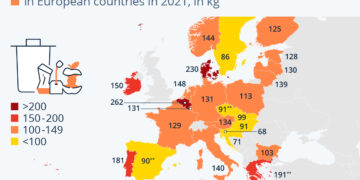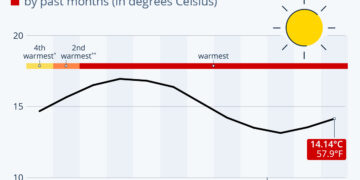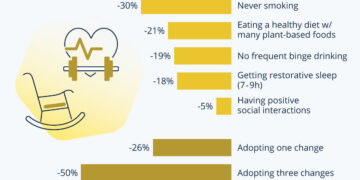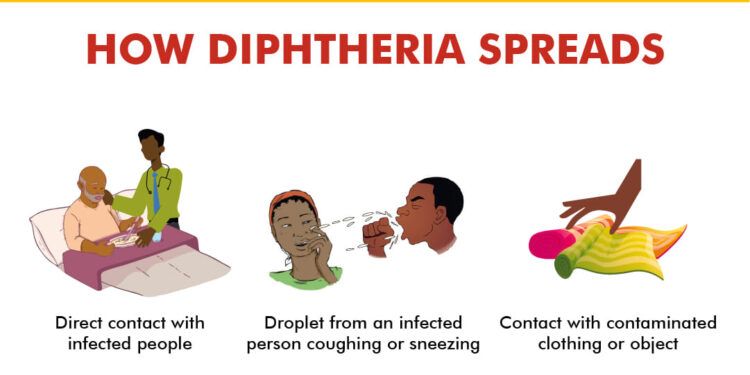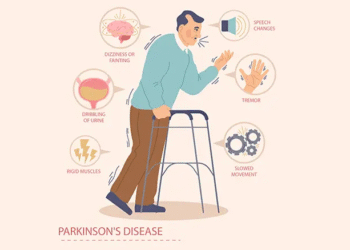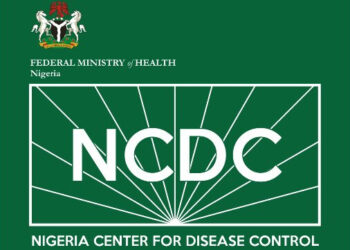Diphtheria, a highly contagious and potentially fatal bacterial infection, has re-emerged as a significant public health crisis in Nigeria. Despite being preventable through vaccination, the country has witnessed an alarming rise in cases, particularly among children, due to low immunization rates, misinformation, and logistical challenges in vaccine distribution.
A Recent Outbreak and Its Impact
A stark example of the dangers posed by diphtheria was seen on February 22, 2025, when a 12-year-old student at King’s College developed symptoms of the disease. Despite receiving medical attention at the Lagos University Teaching Hospital (LUTH), he succumbed to myocarditis, a severe complication of diphtheria, on March 6, 2025. This tragic incident led to the identification of 34 close contacts, with 14 of them developing symptoms and undergoing treatment.
The Alarming Statistics
According to the Nigeria Centre for Disease Control and Prevention (NCDC), as of March 9, 2025, Nigeria has recorded 1,319 diphtheria-related deaths. Out of 42,642 suspected cases, 25,812 were confirmed across 36 states and the Federal Capital Territory. Kano, Yobe, Katsina, Bauchi, Borno, Kaduna, and Jigawa account for over 96% of reported cases. Alarmingly, over 60% of the confirmed cases were among children aged 1 to 14 years, with only 19.3% of them being fully vaccinated.
Understanding Diphtheria: Causes and Transmission
Diphtheria is caused by Corynebacterium diphtheriae, a bacterium that primarily affects the throat and nose. It spreads through respiratory droplets when an infected person talks, coughs, or sneezes. It can also be transmitted through close contact, sharing food or drinks, and contaminated objects.
Symptoms and Diagnosis
The symptoms of diphtheria include:
- Severe sore throat
- High fever
- Difficulty swallowing
- Breathing complications
- Skin lesions in some cases
Diagnosing diphtheria can be challenging due to symptom overlap with other respiratory infections. A combination of physical examinations, throat swabs, and imaging tests is used for accurate diagnosis.
Treatment and Prevention
Treatment involves administering antibiotics like erythromycin or penicillin to kill the bacteria, along with an antitoxin to neutralize the toxins. Supportive care, including oxygen therapy, may also be required.
Prevention remains the most effective strategy, primarily through vaccination. The diphtheria toxoid vaccine is administered as part of the pentavalent vaccine (which includes tetanus and pertussis) during infancy.
Why Is Diphtheria a Public Health Concern in Nigeria?
Several factors contribute to the persistence of diphtheria in Nigeria:
- Low vaccination rates: Many parents fail to complete their children’s immunization due to fear of injections or vaccine hesitancy driven by misinformation.
- Vaccine logistics issues: Poor cold chain management can render vaccines ineffective.
- Improper vaccine administration: Incorrect injection techniques may reduce vaccine efficacy.
- Weak healthcare infrastructure: Shortages of healthcare workers and facilities hinder diagnosis and treatment.
- Limited awareness: Lack of education on the disease leads to its rapid spread.
- Conflict and insecurity: Unrest disrupts vaccination efforts and access to healthcare.
- Overcrowding and poor sanitation: These conditions facilitate disease transmission.
Strengthening Nigeria’s Defenses Against Diphtheria
The need for a multi-faceted approach to combating diphtheria:
- Enhancing Immunization Programs: Increasing vaccine availability and improving cold chain management.
- Combating Vaccine Hesitancy: Educating communities to dispel myths and misinformation.
- Strengthening Healthcare Infrastructure: Expanding access to quality healthcare, especially in rural areas.
- Improving Disease Surveillance and Rapid Response: Enhancing laboratory capacity and reporting systems.
- Promoting Hygiene and Sanitation: Ensuring access to clean water and proper waste management.
- Addressing Security Challenges: Ensuring vaccination programs continue despite conflicts.
- Strengthening Government Commitment: Increasing funding for immunization programs and enforcing vaccination mandates.
Diphtheria remains a serious public health threat in Nigeria, exacerbated by low immunization rates, misinformation, and logistical challenges. A coordinated effort involving government agencies, healthcare providers, and community engagement is essential to curb the spread of the disease. By strengthening immunization programs, improving healthcare infrastructure, and promoting awareness, Nigeria can protect its citizens and prevent future outbreaks.












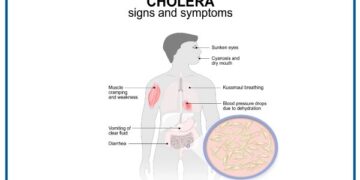

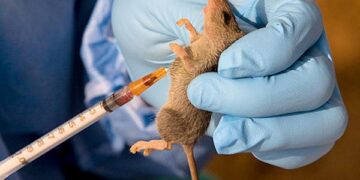



![Antimicrobial Resistance [AMR] in Hausa](https://healthtoday.com.ng/wp-content/uploads/2024/02/antimicrobial-resistance-AMR--360x180.jpeg)




